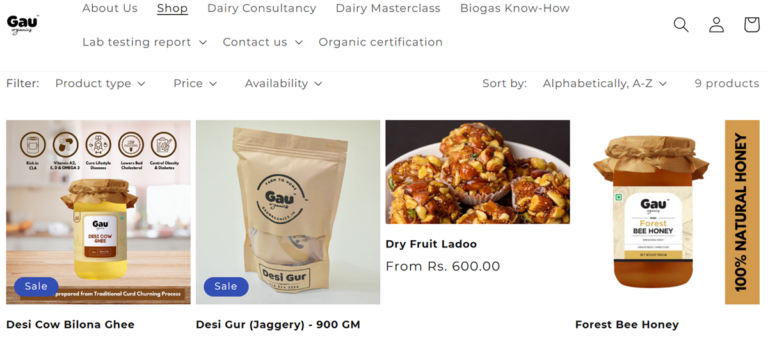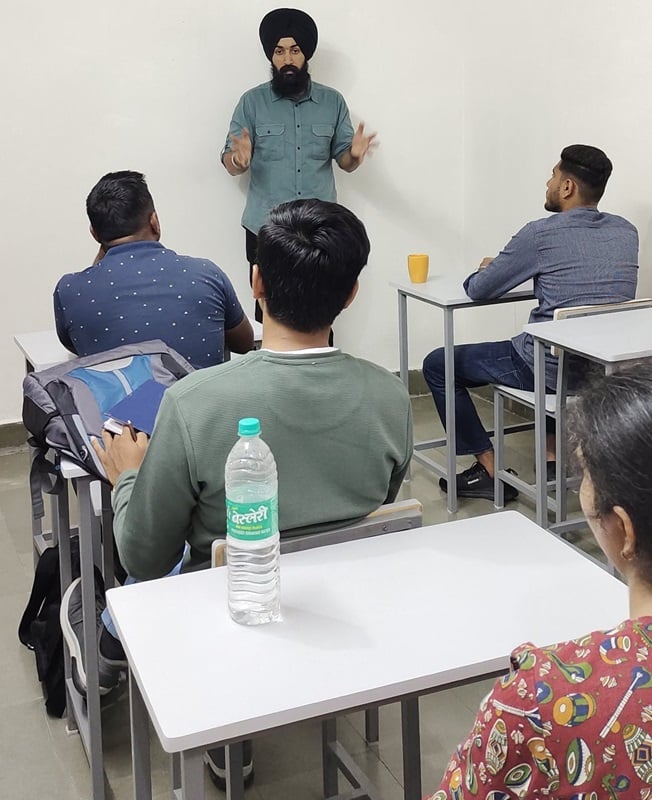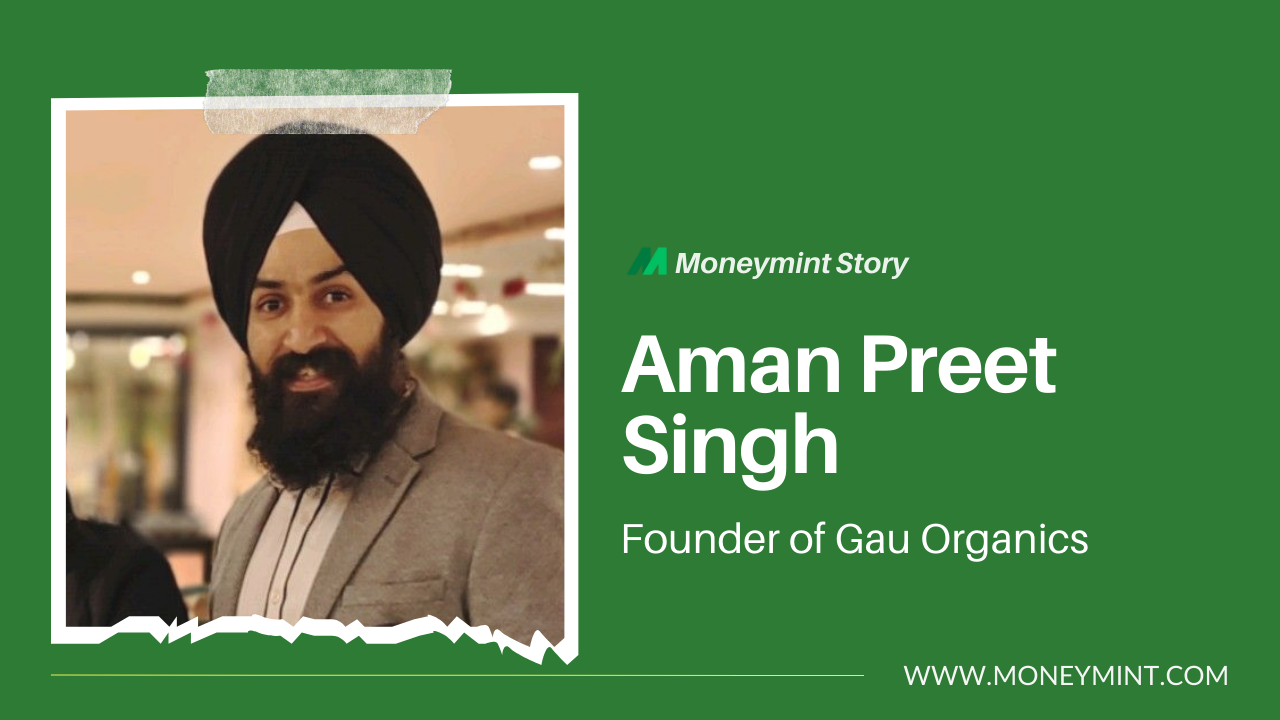In 2022, the Indian agriculture sector consumed around 17.67% of the total electricity generated which has considerably increased over years. But standing as an exception, Kota engineer Aman Preet Singh’s Gau Organics dairy farm generates most of its electricity sustainably and by rainwater harvesting.
Early Life
Aman Preet Singh grew up near farms, which developed in him a strong passion for dairy farming and agriculture. But despite this, he was uncertain about adopting it as a career and decided to pursue engineering to fulfil his family’s expectations.
In 2012, Aman Preet completed his electrical and electronics engineering at Rajasthan Technical University. Then, he decided to pursue his passion on his 50-acre farmland in Kota, Rajasthan for dairy farming.
To strengthen his foundation knowledge, he completed his dairy science course from the National Dairy Research Institute (NDRI) in 2014. Moreover, he also worked at Mother Dairy, Nestlé, and Amul along with pursuing a dairy automation course from Tel Aviv University, Israel in 2015.
Towards the end of 2015, he returned to India and started a dairy farm with the help from a milk company in Israel.
Laying the Foundation: The Gau Organics

In 2016, Aman Preet with his brothers Gaganpreet and Uttam Jyot started Gau Organics. They purchased 27 cows and started with milk subscriptions. Soon they realized that relying solely on milk for income is not the right strategy. Thus, later, they added products like butter, ghee, honey, sweets, organic jaggery, etc.
Today, not only do they sell cow dung and manure but also train other farmers how to follow these sustainable practices.
Most importantly, Aman Preet’s farm covers 70% of their electricity needs through their sustainable practices.
The Nani’s Ghee
Aman Preet is so fond of the homemade Bilona ghee by his maternal grandmother (nani) that he wanted to try and commercialize this on a large scale. He took the recipe from his grandmother, but it took him a year to make it commercial.
Finally, in 2018, Aman Preet opened a store from where the products are exported internationally to Dubai, Qatar, South Africa, and Saudi Arabia. Overall, the startup earns a revenue of around Rs 6 to Rs 8 crore a year.
Following Good Practices
Aman Preet and his team do not treat cows as milk-producing machines. A cow starts producing milk after they are 9 months old, but their health is an important consideration of the quality of the milk. A cow with an upset stomach or any other seasonal illness is unable to produce good-quality milk.
Realizing and Reducing Waste Generation
Soon, they noticed the excess waste generated by the livestock. Thus, to control the excess waste, they decided to utilize it by selling cow dung cakes and manure on Amazon.
However, the jump in sales was noticed after the lockdown in 2020, when people started house gardening and required things to be delivered at the safety of their houses.
Spreading the Knowledge

With a pickup in sales, Aman Preet decided to spread the knowledge. Thus, he started training farmers on how to sell cow dung cakes and manure, especially the farmers who were solely dependent on milk but were not receiving good enough prices for it.
Aman Preet taught them how to use cow’s excreta to make proper manure and sell it online or offline. So far, he and his team have trained 55+ farmers, out of them mostly women. With this, female farmers are successfully earning Rs 200 to Rs 300 per day.
Sustainable Progress
By collaborating with more farmers, the Gau Organics eventually expanded and now they have 250 livestock.
Moreover, they have enough amount of cow dung that they are producing biogas for their farm and are self-sufficiently fulfilling their electricity needs. Aman Preet has also constructed 2 biogas plants of 40 kW each to achieve this independence.
Through this practice, the startup successfully covers almost 70% of their power needs by generating around 80 kW power, and source only the remaining 30% from the state government. This way, they have saved more than Rs 2 lakh per month on electricity bills. Moreover, they also have arrangements for rainwater harvesting and solar power plants.
Struggles and Challenges
Just like any other family, Aman Preet’s family also wanted his son to make a career in engineering. Why not, after all he was an engineer. But to follow his passion, he dedicatedly convinced his family for 4 months.
Why? We take food science and farmers for granted. We need food and we need jobs to earn money to buy that food. But we do not consider thinking that without farmers who will grow that food. Aman Preet understood this gap and is trying to fulfil this.
Future Prospects
He is looking forward to forming an organic natural food cooperative for organic brands like Gau Organics to provide nutrition to the nation. Yes, something similar to the Gujarat Milk Marketing Federation (Amul).




